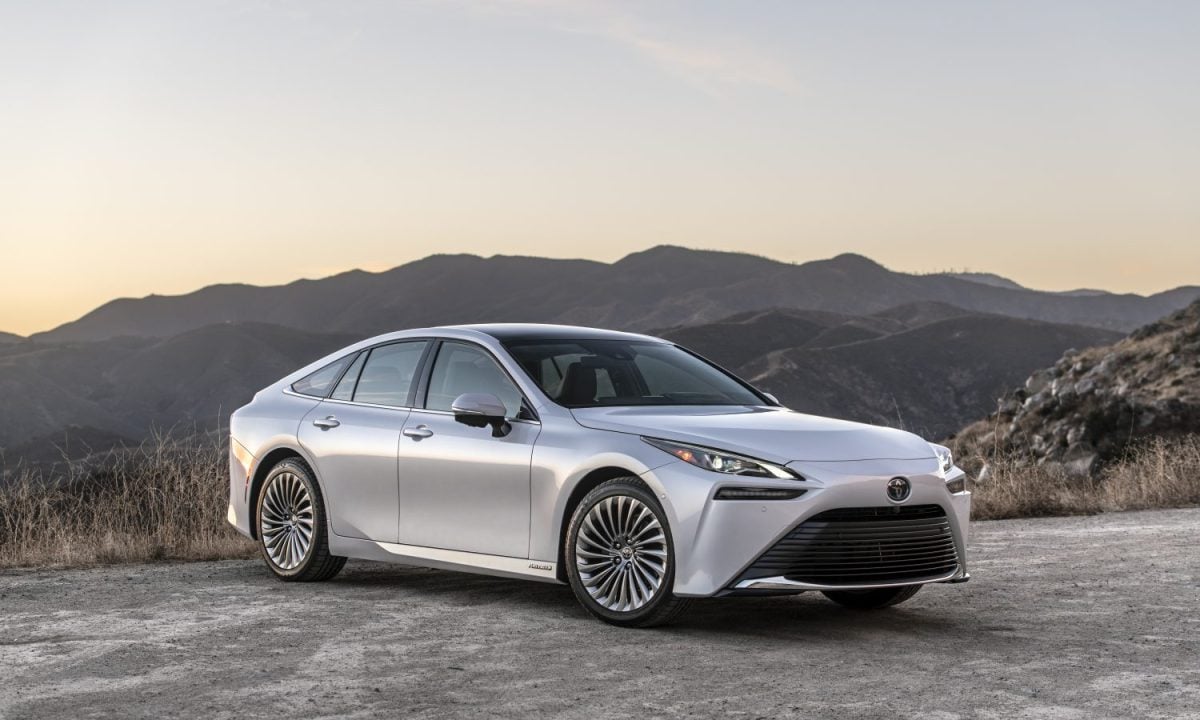- cross-posted to:
- technology@lemmit.online
- cross-posted to:
- technology@lemmit.online
Toyota wants hydrogen to succeed so bad it’s paying people to buy the Mirai::Toyota is offering some amazing deals for its hydrogen fuel cell-powered Mirai. That is, if customers can find the hydrogen to power it.



We will run out of fossil fuels someday. We can also just ban making hydrogen from fossil fuels and then selling it to car manufacturers. Just like with battery demand … you get the demand increased and research will take off from there to find ways to make it cheaper and faster.
Currently literally 99% of the world supply of hydrogen is fossil fuels. Yes, in the “future centuries” sense of the long term things might be different, but in the “we need to stop climate change in the next decade or so” sense it’s a non-starter. If you banned companies from making hydrogen from fossil fuels, the world simply wouldn’t have enough hydrogen.
It’s basically not possible to make electrolysis more efficient; the energy requirements are simple physics. The only way that technology can make green hydrogen cheaper is to reduce the capital cost of building an electrolysis plant, and to make enough surplus electricity that the cost to ring it comes down. Although as the latter also makes recharging a BEV cheaper too, that doesn’t necessarily get hydrogen anywhere closer to being competitive.
My thought is we could feed electrolysis with nuclear, solar, or tidal generation plants to create hydrogen. That doesn’t mean it would be cheap, but maybe it could get us to the quick refill infrastructure we have with gasoline currently that we’re having trouble mirroring with BEVs for long trips.
I haven’t run the math … so if you have or you know a source that has and this is beyond uneconomically feasible (like it would cost $$$$$ for a single “tank of
gashydrogen”), fair enough.For comparison, grey hydrogen currently costs around $2 per kg, and green hydrogen costs around $12 per kg. Filling a Toyota Mirai tank with green hydrogen would cost you about $70. That’s production at today’s electricity prices. The cost to fully charge a Tesla is about $15, same rates.
So for green hydrogen to beat grey hydrogen on the open market, costs need to drop by a factor of 6. And because it can only do this if electricity prices drop off a cliff, it’d be doing this in an environment where you can fully charge a luxury BEV for $3…
Hydrogen is also not the only game in town in terms of competitors with BEV. For those niches where fully battery-operated vehicles aren’t practical, there are also biofuels, which are (from a climate change point of view) greener than green hydrogen anyway (although they have their own controversies).